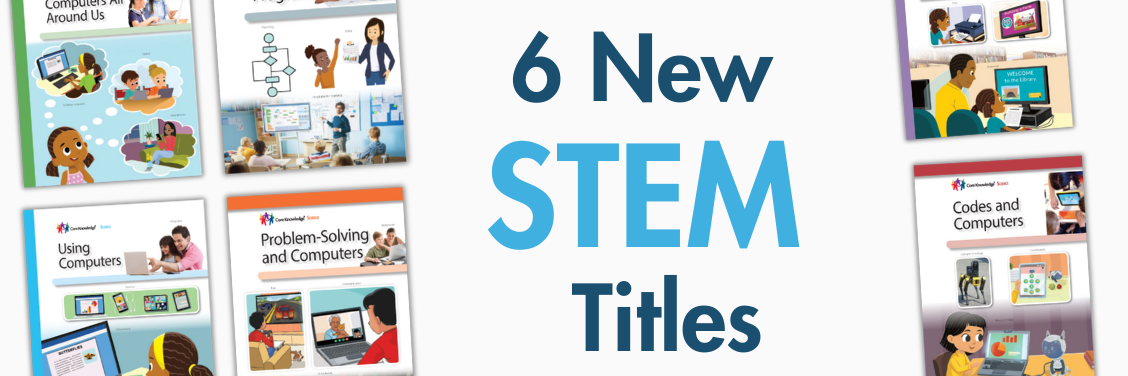Our eBook library is growing every day! Just this week we’ve added new computer and technology focused titles from our publisher partner, Core Knowledge Foundation. Take a look at our six newest titles below:
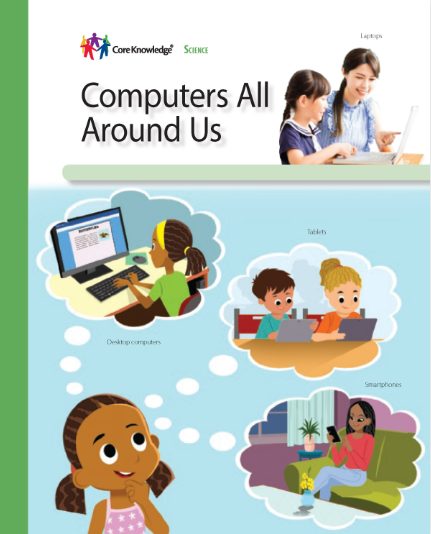
Computers All Around Us
By: Core Knowledge Foundation
Grade Level: K
The goal of the instruction and cumulative experiences in this unit is for students to build a concept of what makes a thing a computer. Students think about how tools and devices can be helpful for completing tasks. Students are able, from everyday exposure, to differentiate devices that need a power source and those that do not. Within the class of devices that need a power source, students can form a further classification of electronic devices—ones that do something with information that is put into the device. Upon recognizing input-processing-output characteristics of devices, students can also begin to classify and use devices for different purposes, including playing games, communicating, and doing schoolwork.
Helpful Computers
By: Core Knowledge Foundation
Grade Level: 1
Helpful Computers introduces Grade 1 students to real-world examples of how to use a computer for basic tasks. The unit includes a story-based Student Book that takes students on a journey with a young girl who has been given a homework assignment. With her father she visits a library and learns the basics of how to use a computer, including passwords, using links, creating accounts, and computer safety.
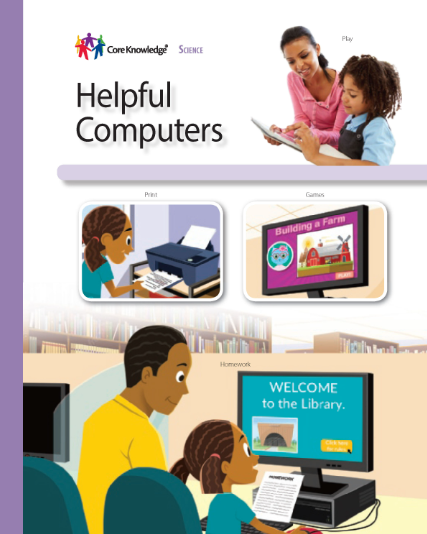
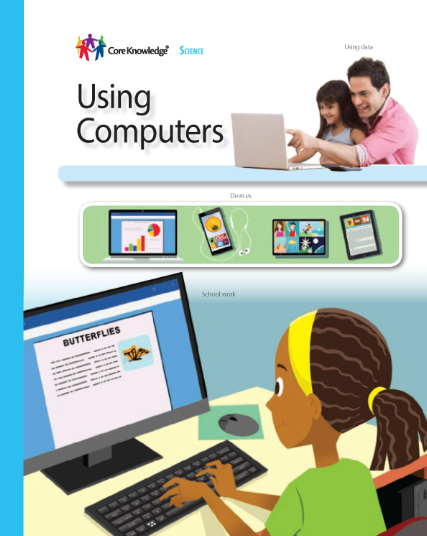
Using Computers
By: Core Knowledge Foundation
Grade Level: 2
Building on the use of devices established in the previous grade, the goal of the instruction and cumulative experiences in this unit is for young students to continue using with, increasing independence, computer devices for various purposes, including game play, communication, and schoolwork. With increasing practice in successfully inputting information, students can consider ways to achieve creative outputs that use and combine text, graphics, visual data displays, photos, animations, video, and audio.
Codes and Computers
By: Core Knowledge Foundation
Grade Level: 3
In this grade level, the emphasis begins to shift from use—skillfully inputting information to prompt outputs—to the unseen processes inside computing technology. The goal of the instruction and cumulative experiences in this unit is for students to identify the output of every computer device as a solution to a problem and deconstruct the solution into the necessary steps required. Students discern that computers do not think on their own to solve problems but only execute step-by-step instructions that people build into them. Students begin to dissect codes into the granular parts that make them up and transmit them.
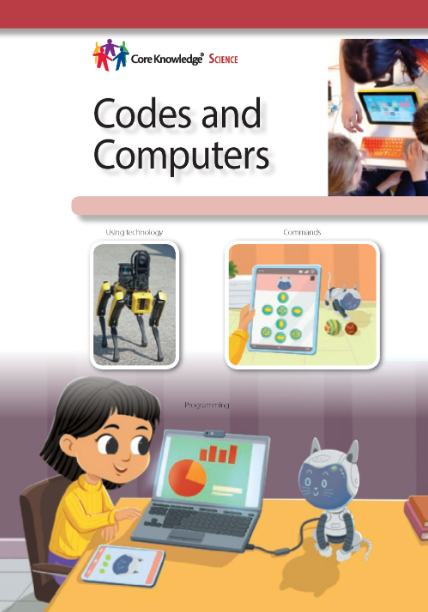
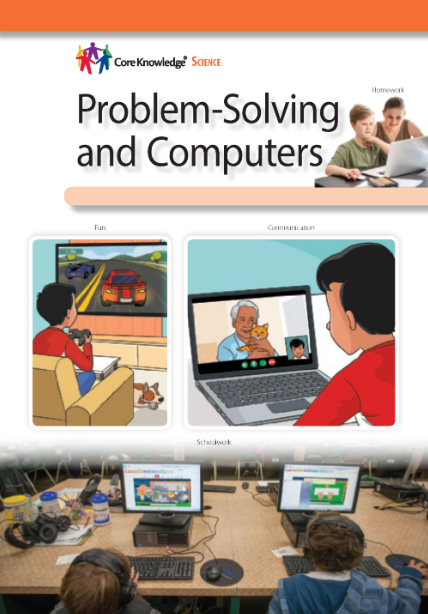
Problem-Solving and Computers
By: Core Knowledge Foundation
Grade Level: 4
Building on the concepts of symbols, codes, signals, and step-by-step instructions established in the previous grade, the goal of the instruction and cumulative experiences in this unit is for students to continue articulating steps of increasing complexity to solve problems. Beyond dissecting solutions into granular steps, students think forward in scenarios with conditional branching options (if-then statements) and loops (if-then, repeat prior instruction). Students relate what computing devices do to their programming, and they build an understanding that complex computer programming is the outcome of building, layering, and chaining together links of fundamentally simple code.
Designing Computer Programs
By: Core Knowledge Foundation
Grade Level: 5
In this grade level, the emphasis begins to shift from examination—figuring out how instructions make computing devices do what they do—to the creative application of that knowledge. Students step forward from the role of computer technology user into a beginning maker role. Students begin to use functional computer language to craft code for executable tasks. This gives students practical experience in computer programming, which is a solid foundation for middle school computer programming classes.
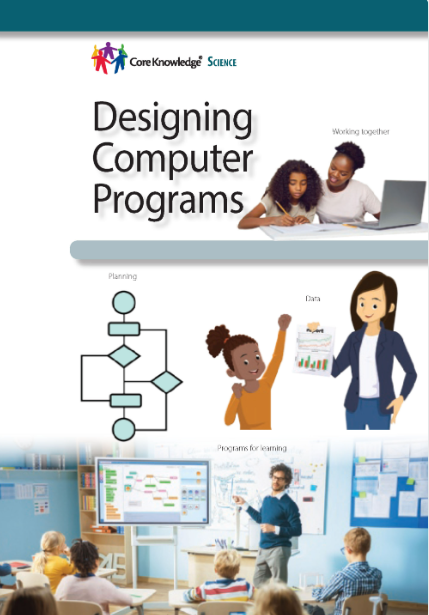
Take a further look into these eBooks (and their teaching guides!) by visiting our website here.

